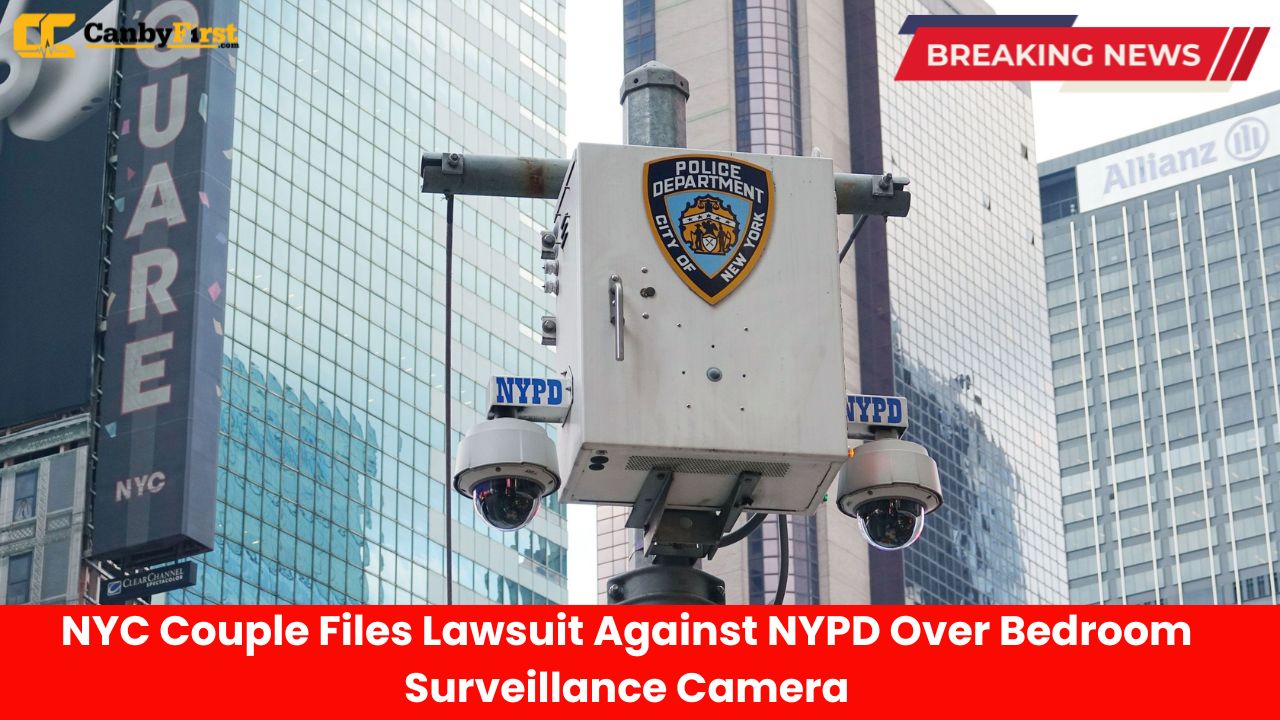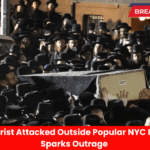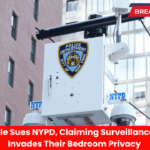New York, US: A Manhattan couple has filed a lawsuit against the New York Police Department, claiming that a surveillance camera installed on a nearby streetlight points directly into their bedroom window, violating their privacy and constitutional rights.
According to court documents filed this week, the couple alleges that the camera, placed by the NYPD as part of a citywide security program, is positioned at such an angle that it captures private moments inside their home. They argue that this constitutes illegal surveillance and a breach of the Fourth Amendment, which protects citizens from unwarranted searches by government authorities.
Claims of Invasion of Privacy
The couple, whose names have been withheld in some court filings for privacy reasons, said they first noticed the camera in early summer. At first, they assumed it was part of standard neighborhood monitoring. However, after observing its rotation and field of view, they realized it appeared to be directed straight toward their apartment.
Also Read
In their complaint, the couple describes feeling “watched and violated,” saying that the awareness of possible observation has left them anxious and unable to live comfortably in their own home. They claim that repeated requests to city officials and local precinct officers for clarification went unanswered.
Legal Action and Demands
Their attorney stated that the lawsuit seeks an immediate injunction ordering the NYPD to remove or reposition the camera, as well as financial compensation for emotional distress and the alleged invasion of privacy.
“The placement of this camera is not about public safety anymore,” the attorney said in a statement. “It crosses a line into unconstitutional surveillance when it peers into someone’s private bedroom.”
The suit also calls for a full review of the NYPD’s camera placement policies, arguing that the department has failed to create clear guidelines that prevent residential intrusion. The couple maintains they fully support law enforcement but believe security efforts must respect the legitimate expectation of privacy inside one’s home.
NYPD’s Response
When asked about the lawsuit, an NYPD spokesperson said that the department’s camera systems are used strictly for public safety and crime prevention, not for surveillance of private property. The spokesperson added that all locations are reviewed to ensure compliance with privacy laws, but declined to comment specifically on the pending litigation.
City officials have not confirmed whether the camera was installed as part of the NYPD’s Domain Awareness System, a large network of surveillance feeds across New York City. That program is designed to monitor public areas, intersections, and high-crime zones to assist in investigations and emergency responses.
Broader Concerns about Surveillance
This case has reignited public debate about the growing presence of surveillance cameras in New York City. Privacy advocates warn that without proper oversight, advanced technologies such as facial recognition and automated tracking systems could quietly erode civil liberties.
Experts note that while surveillance can deter crime, improperly placed cameras can expose innocent citizens to unwanted monitoring. Similar disputes have emerged in other major cities, where residents have complained that government cameras pointed into private areas or were used without sufficient transparency.
Voices from the Neighborhood
Neighbors of the couple expressed mixed reactions. Some believe the camera is necessary to deter crime in what they describe as a busy area prone to theft and vandalism. Others sympathize with the plaintiffs, saying no one should feel unsafe in their own home due to potential government surveillance.
One local resident remarked that they, too, noticed the same camera turning toward their building at times but dismissed it as part of standard police operations. “If it’s actually capturing people inside their homes, that’s going too far,” the neighbor said.
What Happens Next
Legal experts say the case could set an important precedent for defining the limits of municipal surveillance programs. If a court determines that the camera’s placement does violate privacy rights, the ruling could force government agencies to adopt more transparent and regulated surveillance practices.
The couple’s attorney plans to file additional motions if the NYPD does not take immediate corrective action. The next hearing is expected in the coming weeks, where the court will decide whether to temporarily restrict the use of the disputed camera until a verdict is reached.
For now, the couple says they have covered their bedroom windows for peace of mind while awaiting the outcome of their case. “We love our city and respect the police,” they stated in a brief comment, “but no one should have to live under the eye of a camera inside their own home.”












